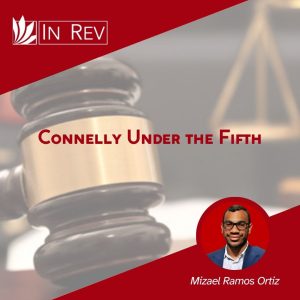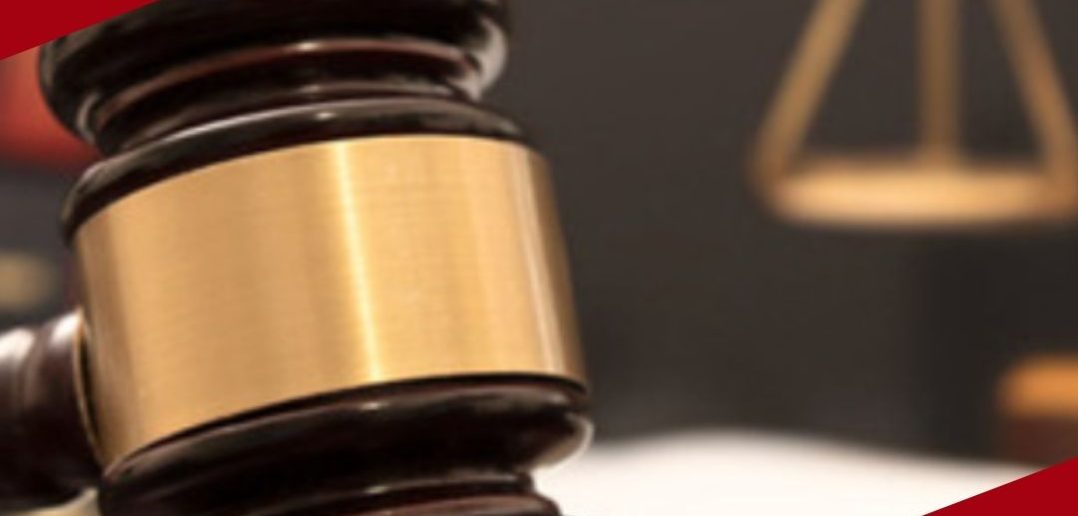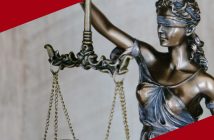
Author: Mizael Ramos Ortiz**
“Surely in the present stage of our civilization a most basic sense of justice is affronted by the spectacle of incarcerating a human being upon the basis of a statement he made while insane.”[1]
Introduction
Imagine the following scenario: a patient with a mental health condition, which impedes him from acting out of his own free will, finds himself in a difficult predicament. His condition compels him to confess to a crime he has committed. He is compelled because his perception does not allow him to view the situation any differently. He has no choice, so he confesses. The patient, having been treated and rendered competent for criminal proceedings, is now faced with the words he said whilst suffering from his condition. Should he be forced to face his own words, or does the Federal Constitution afford him protection in this scenario? In other words, does the Federal Constitution require the suppression of a confession a defendant made when his mental state interfered with his rational intellect and free will?
That was the question the Supreme Court resolved in Colorado v. Connelly, answering with a resounding no.[2] However, as we shall see, the Supreme Court was not required to reach this conclusion, nor was it forced to adopt the dissent’s position—although they certainly proposed a plausible alternative. As I will argue, the answer to this pressing question resides in the Fifth Amendment.
In this article, I will begin by summarizing the Supreme Court’s decision in Colorado v. Connelly. Afterwards, I will argue that the protections afforded by the Fifth Amendment—as developed by the Supreme Court’s subsequent cases—would provide defendants like Mr. Connelly with adequate protection, without unduly compromising the state’s interest in prosecuting crimes. Finally, I will conclude with several proposals that, in my opinion, would best serve these competing interests, and most importantly, explicitly afford protection to the more vulnerable members of our society.
I. Colorado v. Connelly
The facts of this case are as follows: On August 18, 1983, Francis Connelly traveled from Boston to Denver to confess to a murder he had committed there in 1982.[3] Once he approached a Denver police officer, the agent promptly advised him of his rights.[4] Mr. Connelly replied that he understood, but insisted that he still wanted to confess.[5] Later, he provided a detailed confession to a homicide detective, whom he accompanied to the scene of the crime, and pointed out the exact location of the murder.[6] After all of this, the Denver police kept him detained overnight.[7]
During his interview with the public defender’s office, Mr. Connelly became visibly disoriented, giving incoherent answers and claiming that “voices” had forced him to travel to Denver to confess.[8] He was found incompetent to stand trial but was later rehabilitated.[9] The defense moved to suppress all of his statements, providing expert witness testimony from Dr. Jeffrey Metzner, who testified that the patient suffered from chronic schizophrenia and “was in a psychotic state at least […] the day before he confessed.”[10] The doctor testified that, throughout the entirety of the events leading up to the confession, Mr. Connelly’s state of psychosis (which he described as hearing the “voice of God”) compelled him to travel and confess.[11] The expert conclusion was that “Connelly’s psychosis motivated his confession.”[12] The Colorado trial court ruled in favor of suppressing Mr. Connelly’s statements, finding that they were involuntary and not “a product of the defendant’s rational intellect and free will.”[13] The Colorado Supreme Court affirmed.[14] The case made its way to the Supreme Court of the United States through a petition for certiorari, which the Court granted in order to resolve what it characterized as a “conflict with prior holdings.”[15] The case reached the Supreme Court as a Fourteenth Amendment question surrounding the voluntariness of the confessions absent police coercion.[16]
The Supreme Court, in a 7-2 decision, held that the Fourteenth Amendment was inapplicable to this case.[17] Chief Justice Rehnquist, joined by five other justices,[18] stated: “[w]e hold that coercive police activity is a necessary predicate to the finding that a confession is not ‘voluntary’ within the meaning of the Due Process Clause of the Fourteenth Amendment.”[19] Aside from reiterating this rule, the majority also evaluated the validity of Mr. Connelly’s Miranda waiver, and found that it had been voluntary in the same way that his confession had been voluntary because it had not been coerced.[20] Justice Brennan dissented, reasoning that the Court’s precedents did not support the conclusion that the majority was drawing.[21] “The Court’s holding that involuntary confessions are only those procured through police misconduct is thus inconsistent with the Court’s historical insistence that only confessions reflecting an exercise of free will be admitted into evidence.”[22]
Absent from the opinions circulated in this case was any discussion regarding the admissibility of Mr. Connelly’s statements under the Fifth Amendment.[23] It may well have been that, once the Supreme Court found the waiver to be valid under Miranda, they also concluded that his rights under the Fifth Amendment did not extend beyond the protections offered in the Miranda warnings. However, this was not a mandatory conclusion. Because the trial court had found that Mr. Connelly’s mental state interfered with his “attempted waiver of the right to counsel and the privilege against compulsory self-incrimination,”[24] the Supreme Court did not need to limit its analysis to Miranda. Instead, the Court could have (and should have) explored the implications of Mr. Connelly’s mental state over his Fifth Amendment rights. At the minimum, given that this was strictly a Due Process case, the Court could have remanded for further exploration of this question.
II. Connelly under the Fifth
In this section, I will analyze the facts of Connelly through the doctrinal lens of the Fifth Amendment.
The Fifth Amendment provides, in relevant part, that “[n]o person … shall be compelled in any criminal case to be a witness against himself.”[25] This has been characterized as a trial right, meaning that its core value is in affording people protections during a criminal trial.[26] As described by the Supreme Court, the Fifth Amendment does not come into play until the statements are introduced at trial, thereby compelling a defendant to be a witness against himself.[27] Although there has been some debate as to what the term criminal case may mean, there is no doubt that the trial itself falls squarely within its ambit.[28] “[T]he core protection afforded by the Self-Incrimination Clause is a prohibition on compelling a criminal defendant to testify against himself at trial.”[29] Therefore, the majority’s claim that the Fifth Amendment did not go further than police misconduct is contradicted by the Court’s own description of the Fifth Amendment.[30] Having clarified the nature of Connelly’s Fifth Amendment right—a trial right—let’s see if, under the facts of this case, Mr. Connelly’s Fifth Amendment rights were honored.
A. “Compelled”
What does it mean to be compelled Fifth Amendment? If the Fifth Amendment is a trial right, can we definitively say that compulsion only applies to police action? According to LaFave, the fundamental paradigm for compulsion was the subpoena ad testificandum, which required a person to testify under oath in Court.[31] This was particularly significant because it would place defendants in the position of either self-incriminating themselves or committing perjury.[32] Wigmore’s historical analysis of the origins of the Fifth Amendment reveals that one of the central concerns in its early development—particularly in the 17th century—was the practice of ecclesiastical courts compelling the accused to testify under oath.[33] This concern was brought into sharp focus during the trial of John Lilburn, who was prosecuted for heresy.[34] In response to that notorious proceeding, a bill was subsequently passed prohibiting the compulsory practice of requiring defendants to answer under oath, laying an early foundation for what would become the privilege against self-incrimination.[35]
This is not a historical essay, and I am not arguing that the history and tradition of the Fifth Amendment wholly support interpreting the word compelled as the act of forcing someone to answer in court. Nor am I willfully blind to the tradition which proposes that the Fifth Amendment was concerned with the abolition of torture,[36] although Chavez v. Martinez might suggest an alternative theory.[37] The Fifth Amendment, as has been suggested, can be subject to varying interpretations.[38] Justice Rehnquist once said, “the constitutional language in which the privilege is cast might be construed to apply only to situations in which the prosecution seeks to call a defendant to testify against himself at his criminal trial.”[39] I am of the opinion that the Fifth Amendment can be two-fold, but I may be alone in that claim.[40] For the purposes of this analysis, I will side with the interpretation that compulsion occurs when a defendant is forced to testify in court against his will.
In Mr. Connelly’s case, he was forced to testify against himself; he was compelled. How so? As testified by the psychiatrist in the trial court, Mr. Connelly was impeded from acting out of his free will as he was undergoing psychosis.[41] His confession was not the product of a voluntary, rational choice. That is, as the Supreme Court well pointed out, not where the violation occurs.[42] Rather, the violation occurs in court when Mr. Connelly’s statements are introduced. He is being compelled insofar he cannot choose to refrain from confessing in court. His statements were involuntary outside of court, remained involuntary when presented in court, and were compelled to be produced in trial.
B. “Criminal case”
As mentioned above, there is no doubt that a trial is part of the criminal case. However, Mr. Connelly’s suppression came at the preliminary hearing phase.[43] No Supreme Court opinion has yet resolved which procedures are included in the term criminal case,[44] but some Circuits have gone as far back as to the bail hearing.[45] To support the finding that the preliminary hearing is part of the criminal case, I remit to Coleman v. Alabama, which defined said procedure as a “critical stage” of the criminal procedure, in which a defendant has the right to legal counsel.[46] Given the nature of the procedure, and how some Circuit Courts have included pretrial proceedings as part of the criminal case, I am of the opinion that Mr. Connelly’s state preliminary hearing was part of his criminal case.
C. “Witness”
The Supreme Court has clarified that the phrase “witness against himself” in the Fifth Amendment is limited to the production of testimonial evidence.[47] Only the production of testimonial evidence, one where the accused is forced to “disclose the contents of his own mind,” falls within the scope of the Fifth Amendment.[48] It is uncontroversial to conclude that the statements made by Mr. Connelly constitute testimonial evidence.
Conclusion
Mr. Connelly’s Fifth Amendment rights were violated. I harbor no doubt that the Fifth Amendment is and should be applicable to cases such as Mr. Connelly’s. To take someone’s statements, made when they could not refrain from pronouncing them, and later introduce them in court, is to compel that person to testify against himself. It is to confront him with a version of himself he could not control and cannot keep from the witness stand. Our protection under the Fifth Amendment should provide a remedy for this. I conclude this article with a proposed framework.
The Fifth Amendment’s protection against self-incrimination has been characterized as a trial right.[49] Therefore, no constitutional violation occurs until and unless the statements are introduced in a criminal proceeding.[50] In cases similar to Mr. Connelly’s, any alleged violation arises when the statements are introduced in court. Once objected, and if the defense raises the question of mental insanity at the time the declarations were made, courts should take steps to determine whether the defendant was sane at the time of making the declarations. If he is found to be sane and to have proffered his statements voluntarily, then his declarations are admissible. If he is found to be insane, then they should be struck and declared inadmissible.
Critics may argue that the adoption of a rule like the one proposed would unduly burden law enforcement officers and courts, but such concerns are unfounded. Such a rule would not impose any additional burdens on police officers nor require any extra effort from them. For example, the police agents in Mr. Connelly’s case acted appropriately by giving the required warnings and proceeding as they did. Similarly situated police officers would continue to act as trained.
Other critics might pose that this rule adds work to an already overworked judicial system. I disagree. In Connelly, for example, the court had already found that Mr. Connelly was undergoing a mental health episode at the time of his confessions. This means that, had the rule been in place for Mr. Connelly’s case, the courts would not have been required to do anything more than they had already done. This rule would simply allow defendants to raise the issue of their mental state upon learning of the prosecution’s intent to use their confessions.
Lastly, some could say that this unduly punishes law enforcement. However, the rule does not seek to punish officers, but rather to protect the defendant’s constitutional right against self-incrimination. Prosecutors would still be free to rely on all other admissible evidence to build their case and try a defendant.[51]
* The author would like to thank Professor Oscar Miranda Miller for his feedback and comments throughout the process of brainstorming and writing this article.
**The author is a third year student from the University of Puerto Rico School of Law and writer of the seventh volume of InRev. He has a bachelor’s degree in Natural Sciences with a concentration in Interdisciplinary Studies.
[1] Blackburn v. Alabama, 361 U.S. 199, 207 (1960).
[2] Colorado v. Connelly, 479 U.S. 157 (1986).
[3] Id. at 160-62 (where the factual details of the case are recounted).
[4] Id. at 160.
[5] Id.
[6] Although outside of the scope of this article, some of the factual descriptions of this case may align with cases of “confession contamination.” For more on this, see Brandon L. Garrett, The Substance of False Confessions, 62 STAN. L. REV. 2052, 1066-73 (2010).
[7] Connelly, 479 U.S. at 161.
[8] Id.
[9] Id.
[10] Id.
[11] Id.
[12] Id.
[13] Id. at 162.
[14] Id.
[15] Id. at 159.
[16] Id.
[17] Id. at 167.
[18] Id. at 158 (where the seventh vote, making it a 7-2 decision, was a concurring opinion by Justice Stevens).
[19] Id. at 167.
[20] Id. at 169.
[21] Id. at 174.
[22] Id. at 181.
[23] Id. at 169-171 (There, the discussion was limited to the standard for evaluating a Miranda waiver. As the reader can appreciate, nothing was said about whether introducing the statements in Court would violate Connelly’s Fifth Amendment rights).
[24] Id. at 162 (emphasis added).
[25] U.S. CONST. amend. V.
[26] Chavez v. Martinez, 538 U.S. 760 (2003).
[27] U.S. v. Verdugo-Urquidez, 494 U.S. 259, 264 (“The privilege against self-incrimination guaranteed by the Fifth Amendment is a fundamental trial right of criminal defendants. Although conduct by law enforcement officials prior to trial may ultimately impair that right, a constitutional violation occurs only at trial.”).
[28] For a summary of these discussions, see Blake R. Hills, Self-Incrimination and the Dispute over the Meaning of “Criminal Case,” 99 OR. L. REV. 359, 379 (2021). The author of this article is of the opinion that the term “criminal case” should start at the trial.
[29] U.S. v. Patane, 542 U.S. 630, 637 (2004).
[30] Compare Connelly, 479 U.S. pages 169-171, with the descriptions of the Fifth Amendment as a trial right, offered in the varying cases covered in this section.
[31] JEROLD H. ISRAEL & WAYNE R. LAFAVE, CRIMINAL PROCEDURE IN A NUTSHELL: CONSTITUTIONAL LIMITATIONS 415 (7th ed. 2006).
[32] Id. (citing Pennsylvania v. Muñiz, 496 U.S. 582 (1990)).
[33] John H. Wigmore, The Privilege Against Self-Incrimination: Its History, 15 HARV. L. REV. 610, 621–24 (1902).
[34] Id. at 624-5.
[35] Id. at 625-6.
[36] See Erwin N. Griswold, The Fifth Amendment, 39 MASS. L.Q. 44, 45 (1954); Miranda v. Arizona, 384 U.S. 436, 442–45 (1966); Colorado v. Connelly, 479 U.S. 157, 170 (1986) (“The sole concern of the Fifth Amendment, on which Miranda was based, is governmental coercion.”).
[37] I note that Chavez v. Martinez might suggest a different theory because there, police misconduct was insufficient to activate the Fifth Amendment. If police misconduct itself is not enough, it’s hard to sustain that the Fifth Amendment is mainly concerned with torture and police overstepping. See Chavez v. Martinez, 538 U.S. 760, 767 (2003) (J. Thomas) (“The text of the Self-Incrimination Clause simply cannot support the Ninth Circuit’s view that the mere use of compulsive questioning, without more, violates the Constitution.”).
[38] See Tracey Maclin, The Prophylactic Fifth Amendment, 97 B.U. L. REV. 1047, 1064 (2017) (citing Brown v. Walker, 161 U.S. 591, 595 (1896)).
[39] Michigan v. Tucker, 417 U.S. 433, 440 (1974).
[40] Nothing impedes state courts—like the Puerto Rican Supreme Court—to find that the state constitutions are subject to a broader interpretation. Such has been the calling of Professor Álvarez González in the subject matter of constitutional interpretation for years. See José Julián Álvarez González, La Protección de los Derechos Humanos en Puerto Rico, 57 REV. JUR. UPR 133, 168 (1988).
[41] Connelly, 479 U.S. at 161-2.
[42] Id. at 163-5 (analyzing how the lack of police coercion was key for determining whether a statement was made voluntarily).
[43] Id.; People v. Connelly, 702 P.2d 722, 725 (1985) (Colorado Supreme Court opinion).
[44] Chavez v. Martinez, 538 U.S. 760, 767 (2003) (J. Thomas) (“We need not decide today the precise moment when a ‘criminal case’ commences.”)
[45] Hills, supra note 28, at pgs. 373-77.
[46] Coleman v. Alabama, 399 U.S. 1, 10 (1970) (“the Alabama preliminary hearing is a ‘critical stage’ of the State’s criminal process at which the accused is ‘as much entitled to such aid [of counsel]. . . as at the trial itself.’”).
[47] Schmerber v. California, 384 U.S. 757 (1966); Holt v. United States, 218 U.S. 245, 252 (1910); See also KAMISAR, LAFAVE AND ISRAEL’S MODERN CRIMINAL PROCEDURE, 593-95.
[48] Pennsylvania v. Muñiz, 496 U.S. 582 (1990).
[49] See section II of this article.
[50] Chavez v. Martinez, 538 U.S. 760 (2003).
[51] William T. Pizzi, Colorado v. Connelly: What Really Happened, 7 OHIO ST. J. CRIM. L. 377 (2009) (suggests that the evidence available was sufficient to convict Connelly. Findings like this support that the proposed rule would not trump the state interest of processing crimes, given that they wouldn’t have needed the statements to achieve a guilty verdict).




